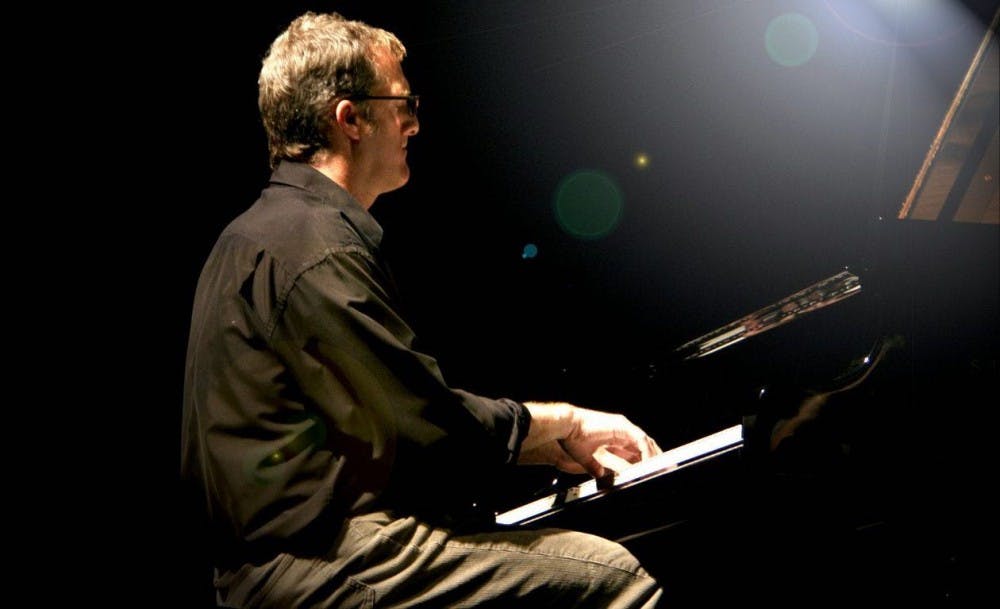The casual music listener often thinks of jazz as academic music. Dense, technical and often based on complex harmonic and rhythmic concepts, it may feel impenetrable without a degree in music theory. But with "MUSC 145: Introduction to Jazz," UNC professor Stephen Anderson is looking to bring jazz to the typical student — and with it, a greater appreciation for music as a whole.
Anderson’s not your traditional jazzman. His career has been marked by influence from academia, Latin music and the avant-garde. He’s an accomplished classical composer as well — his oratorio Isaiah, first performed at UNC, is premiering in Spain this October.
Pulling out a typical jazz chord chart — a version of sheet music specifically for jazz musicians — Anderson noted its relative simplicity.
"Jazz musicians tend to like fewer details, usually, so they can be free to interpret broadly,” Anderson said. “And I love that as a player, but my charts — here’s a composition of mine, it’s got slash chords in it, unusual chords that you wouldn’t normally put — I’m trying to stretch the envelope.”
Anderson takes inspiration from his travels throughout Latin America as much as from his classical training. There, he developed a fascination with the rhythms of Latin music, its tumbling piano montuno patterns and clave-based beats — and met his best friends and bandmates in the Dominican Jazz Project. Rather than simply play their music, however, Anderson seeks to fuse it with his own.
“I would never just want to impersonate them,” Anderson said of his bandmates. “They don’t need a gringo to do that. What they want from me, I think, is to take my perspective and all the harmonies I’ve studied, all the counterpoint and classical training, and mingle that.”
MUSC 145 then, is the product of all of Anderson’s wide-ranging influences. It’s a class that covers every aspect of jazz culture, ranging from its rhythmic origins in African drum music to its fusion with traditional Latin styles.
Accordingly, the aim of MUSC 145 isn’t just to teach you about jazz — it’s to make you a better, more involved listener, Anderson said. As important as jazz is to him as a musician, the genre is merely the medium through which he conveys greater lessons about music as a whole, Anderson said.
“I’m teaching jazz in the class, but to me, the important thing is just the process of listening to someone and appreciating," Anderson said.




